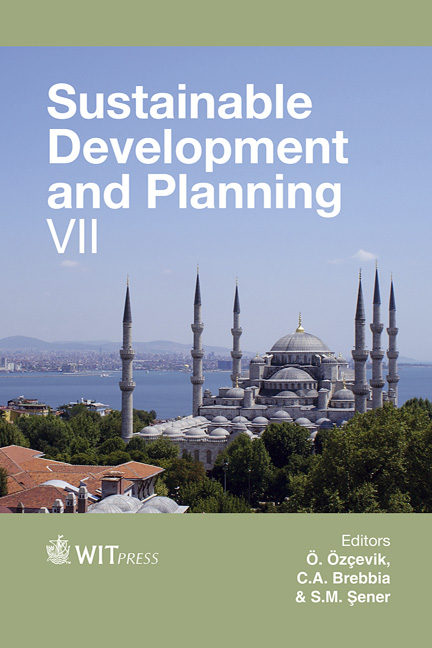Public Perception Of An Approach To Achieve The Goals Of Climate Change Policies
Price
Free (open access)
Transaction
Volume
193
Pages
12
Page Range
559 - 570
Published
2015
Size
346 kb
Paper DOI
10.2495/SDP150481
Copyright
WIT Press
Author(s)
M. Pletikosić
Abstract
This paper interprets the results of the empirical research on the awareness and the opinions of the interested public about the usage of fuel made from waste as an alternative fuel in the cement industry in Croatia. The fossil fuels have created the modern economy in which the emissions of the carbon dioxide represent an immense threat to the environment. To achieve these high set goals it is necessary to make great efforts in informing and sensitizing the public. The research was conducted on the aim sample by an in-depth interview method and by participating observance. The qualitative method of grounded theory was used in the analysis of the empirical material. The coded material was quantitatively processed and calculated with the help of the STATISTICA Ver 11.00 statistic package. The aim of the research was to determine the awareness and the opinions of the interested public about the reasons for the substitution of fossil fuels with alternative fuels made of waste in the cement factory, as well as their influence on climate change. The research determined the level of awareness of the aim and sector groups, related to substitute fuels in industry as an adaptation in the fight against climate change. Most of the examinees considered that the reason for the usage of fuels made of waste in cement factories was finances and they did not directly relate the substitution of the fossil fuels to the adjustment to climate change and the decrease of carbon dioxide emission. Most of the examinees were not sure if the fossil fuels or fuels made of waste were a better solution for the climate change problem. They mostly expressed an opinion that the usage of fuels made of waste in the cement factories was allowed by Croatian laws.
The result analysis showed that the representatives of the aim and sector groups differed in the used variables, depending on the group they belonged to.
Keywords
public opinions, alternative fuels, carbon dioxide emission





